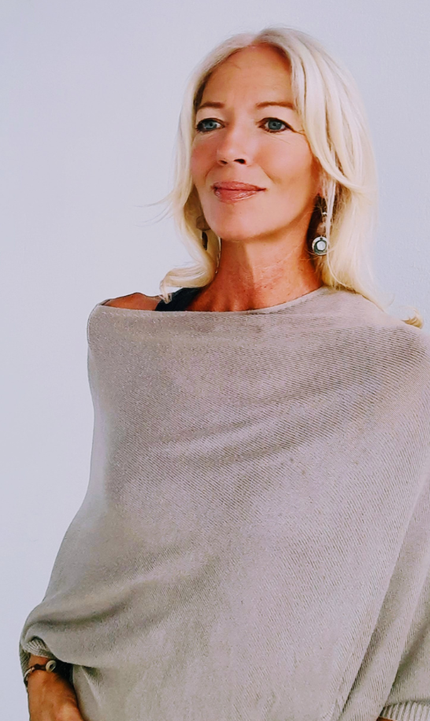The Power and the Danger of Vulnerability
How to protect yourself from manipulation
Vulnerability is often praised as the key to deep connection. A courageous act. And in the right context, it truly is.
In healthy relationships, vulnerability opens the door to honesty and intimacy. But in toxic dynamics – such as with a narcissist – that same openness becomes a weapon. What began as a genuine attempt to connect can end in confusion, pain, or a sense of losing yourself.
For those struggling with codependency, there’s a hidden trap: giving too much, too soon. You may confuse sharing with intimacy, and vulnerability with love.
True strength isn’t about sharing everything.
It’s about knowing when and with whom.

Why people with codependent patterns open up too quickly
Many people with codependent traits grew up with emotional neglect or instability. They learned, often without realising it, that love had to be earned and that opening up completely was the only way to feel connected.
As a result, you may find yourself trusting too quickly, struggling to sense your own boundaries, confusing vulnerability with connection, and giving too much of yourself in the hope of being understood or validated.
This deep belief means that even as an adult, you might give yourself away too soon in a relationship. You trust quickly, struggle to set limits, and share your inner world in the hope of feeling truly connected. But manipulative people, especially narcissists, notice this openness.
Not to connect with you, but to use that openness as an entry point.
What you share with an open heart is rarely held with care in an unhealthy dynamic it’s often used against you. Narcissists in particular are skilled at this, in ways that are subtle yet painfully precise.
In the early phase of a toxic relationship, things often feel safe. You feel seen, heard, even special. You share your deepest feelings, your fears, your past. But all that openness is being carefully stored away.
Narcissists and manipulative people actively seek out vulnerability, not to build intimacy, but to use it as a tool for control.
They may:
-
Collect your deepest fears and pain points early in the relationship and later weaponise them
-
Twist or dismiss your feelings so you end up feeling ashamed or guilty for who you are
-
Use emotional manipulation to make you dependent on their approval
-
Turn your trust against you — using what you shared during arguments or even in front of others
And so, a vicious cycle begins: the more of yourself you give, the more power they gain.
Vulnerability isn’t weakness. But it’s also not something to offer freely to just anyone.
It calls for discernment. Conscious vulnerability means you choose who gets access to your inner world, when you open up, and whether it feels safe enough in that moment.
You don’t need to shut yourself off to feel safe.
But you can learn to attune.
Sometimes vulnerability feels connecting. Sometimes it feels confusing.
So how can you tell whether your openness is being met with respect or whether it might later mean something else entirely?
When vulnerability is not safe:
• You feel pressured to share something personal too soon
• You’re left with shame or discomfort after opening up
• What you’ve shared is dismissed or used against you
• You’re always the one opening up, with no real reciprocity
When vulnerability is powerful:
• The other person is open too, and a sense of safety is present
• You don’t feel pushed to share everything all at once
• Your feelings are acknowledged and respected
• You feel safer after sharing, not less safe
Vulnerability should be earned, not handed out.
It’s a gift, one you offer with care to those who have shown they are worthy of your trust.
After experiencing abuse or manipulation, it can feel safer to shut down completely. You may even have promised yourself, “I’ll never let anyone get that close again.” But a closed heart isn’t protection. It’s a scar.
There is another way. One of conscious, strengthening vulnerability instead of unconscious surrender.
If you’ve been hurt in the past for giving too much, too soon, it’s only natural to hesitate.
But you don’t need to feel less. You’re allowed to choose more wisely.
The key is attunement, not avoidance.
What you need is not hardness, but clarity.
Learn to recognise the signals of your body.
Share small parts of yourself and observe the response.
Let trust grow in your own time.
- Honour your boundaries, even if that means choosing silence for now.
- You don’t need to harden your heart to keep it safe.
- You don’t need to hide yourself in order to feel protected.
- You’re allowed to feel, and still choose carefully who gets to meet that part of you.
Would you like to learn how to keep your heart open, without losing yourself?
In my Codependency Recovery Programme, you’ll learn to:
- Set boundaries with clarity and care
- Build emotional safety from within
-
Find your way back to yourself, without shame, guilt or the need to adapt too much.
Discover the Codependency Recovery Programme